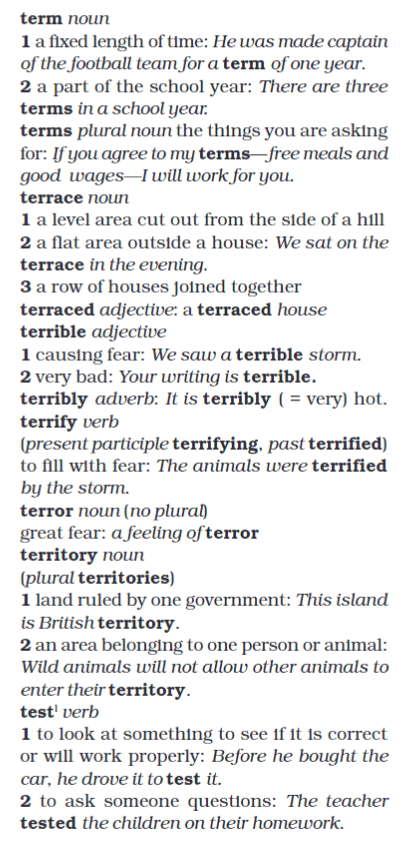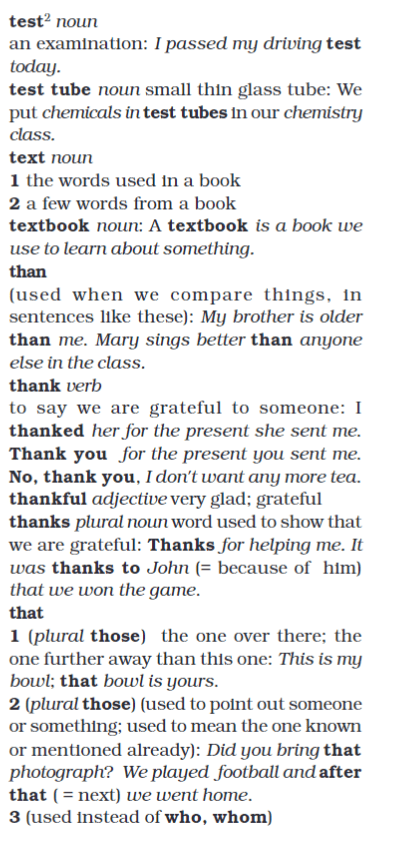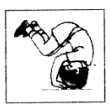NCERT Solutions for Class 6 English Honeysuckle - Chapter 5 - A Different Kind of School
Working With the Text
A. Put these sentences from the story in the right order and write them out in a paragraph. Don’t refer to the text.- I shall be so glad when today is over.
- Having a leg tied up and hopping about on a crutch is almost fun, I guess.
- I don’t think I’ll mind being deaf for a day — at least not much.
- But being blind is so frightening.
- Only you must tell me about things.
- Let’s go for a little walk.
- The other bad days can’t be half as bad as this.
Ans: Let's go for a little walk. Only you must tell me about things. I shall be so glad when today is over. The other bad days can't be half as bad as this. Having a leg tied up and hopping about on a crutch is almost fun, I guess. I don't think I'll mind being deaf for a day - at least not much. But being blind is so frightening.
B. Answer the following questions
Q1. Why do you think the writer visited Miss Beam’s school? (1)
Ans: The writer visited Miss Beam’s school because he had heard a great deal about the unique teaching methods at the school. He wanted to have a personal experience and witness the same.
Q2. What was the ‘game’ that every child in the school had to play? (9)
Ans: The 'game' that every child in the school had to play was that each term, every child had one blind day, one lame day, one deaf day, one injured day, and one dumb day.
Q3. “Each term, every child has one blind day, one lame day…” Complete the line. Which day was the hardest? Why was it the hardest? (9, 11, 15)
Ans: "Each term, every child has one blind day, one lame day, one deaf day, one injured day, and one dumb day." Of all the days, the blind day was the most challenging because the students had to pretend to be blind without sneaking a peek from their blindfolds. They constantly felt as if they might get hit or run into something at any moment.
Q4. What was the purpose of these special days? (5, 9)
Ans: The purpose of these special days was to teach the children thoughtfulness - kindness to others, and how to be responsible citizens. These days make the children appreciate and understand misfortune by making them share in the misfortune of others.
Working With Language
A. Match the words and phrases with their meanings in the box below.paragraph numbers
1. homesick (3)__________________
2. practically (4)__________________
3. it pains me (7)__________________
4. appreciate (9)__________________
5. thoughtless (10)__________________
6. exercise (11)__________________
7. relief (13)__________________
8. ghastly (14)__________________
| Almost it hurts me, a terrible test strength of, understanding the difficulties, wanting to be home, a welcome change, not very caring |
Ans:
1. homesick − Wanting to be home
2. practically − Almost
3. it pains me − It hurts me
4. appreciate − Understanding the difficulties
5. thoughtless − Not very caring
6. exercise − Test the strength of
7. relief − A welcome change
8. ghastly − Terrible
B. Re-word these lines from the story:
1. I had heard a great deal about Miss Beam’s school.
2. Miss Beam was all that I had expected — middle-aged, full of authority.
3. I went to the window, which overlooked a large garden.
4. “We cannot bandage the children’s mouths, so they really have to exercise their willpower.”
Ans:
1. I have come to know a lot about the school run by Miss Beam.
2. Miss Beam was everything I had thought her to be — in the middle years of her life and authoritative.
3. I reached a window which opened in front of a garden of a large size.
4. “The children’s mouths cannot be put into bandages, so an exercise of willpower is required on their part.”
C1. Given below is a page from a dictionary. Look at it carefully:


Q1. Find a word that means the same as ghastly. Write down the word and its two meanings.
Ans: Terrible. Its meanings are:
1. Causing fear
2. Very bad.
Q2. Find a word meaning a part of the school year.
Ans: The word 'term' means a part of the school year.
Q3. Find a word that means examination.
Ans: The word 'test' means examination (to ask someone questions).
C2. Now make lists of
Q1: all the words on the page (plus any more that you can think of) that begin with terr
Ans: Terrible, Terrace, Territory, Terror, Terrify, Terrorism.
Q2: five words that may follow the last word on the page, that.
Ans: thaw, the, then, there, they.
Q3: write down your own meaning of the word thanks. Then write down the meaning given in the dictionary.
Ans: 'thank' is my words, is being grateful to someone for something. Given in the dictionary: to be grateful.
D. A poem for you to read
All but Blind*
All but blind
In his chambered hole
Gropes for worms
The four-clawed Mole.
All but blind
In the evening sky
The hooded Bat
Twirls softly by.
All but blind
In the burning day
The Barn Owl blunders
On her way.
And blind as are
These three to me,
So, blind to Someone
I must be.
WALTER DE LA MARE
Speaking and Writing
A. Make a short list of things you find difficult to do.
For example:
(i) turning a somersault

A Boy Doing Somersault
(ii) threading a needle

Threading a Needle
Compare your list with the others in the class. Can you explain why you find these things difficult to do?
Ans: Attempt yourself.
B. Look at your hands carefully. Now, write down for each finger one action for which that finger is particularly important. For example, the second (or index) finger helps to hold the knife down firmly when cutting.
Ans:
- First Finger (Thumb): It helps us in holding all the things like pencils, pens, notebooks, etc.
- Second Finger (Index Finger): It helps to support a pen while writing.
- Third Finger (Middle Finger): It supports the spoon holding while eating.
- Fourth Finger (Ring Finger): It supports the other fingers in holding onto things.
- Fifth Finger (Little Finger): It enables us to close our fingers to form a punch.
|
297 videos|1066 docs|204 tests
|
FAQs on NCERT Solutions for Class 6 English Honeysuckle - Chapter 5 - A Different Kind of School
| 1. What is the main theme of the chapter "A Different Kind of School"? |  |
| 2. Who is the author of the chapter "A Different Kind of School"? |  |
| 3. How does the school in the story differ from a traditional school? |  |
| 4. What values are promoted in "A Different Kind of School"? |  |
| 5. What lessons can readers learn from the experiences of the children in the story? |  |






















